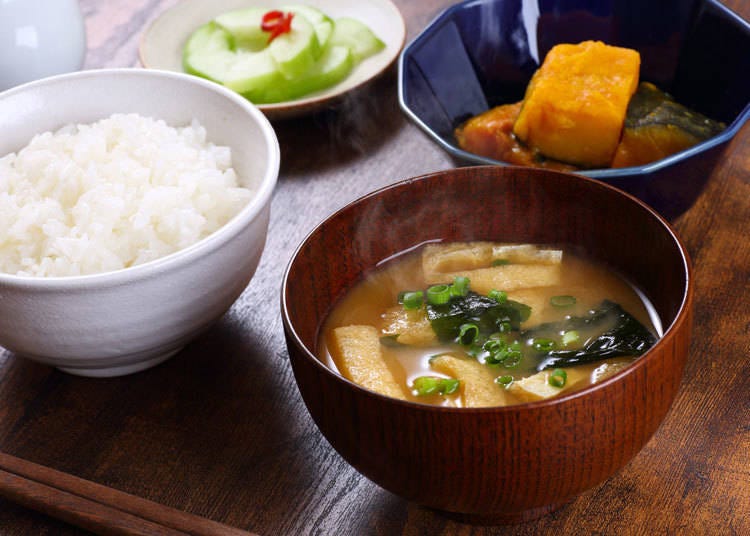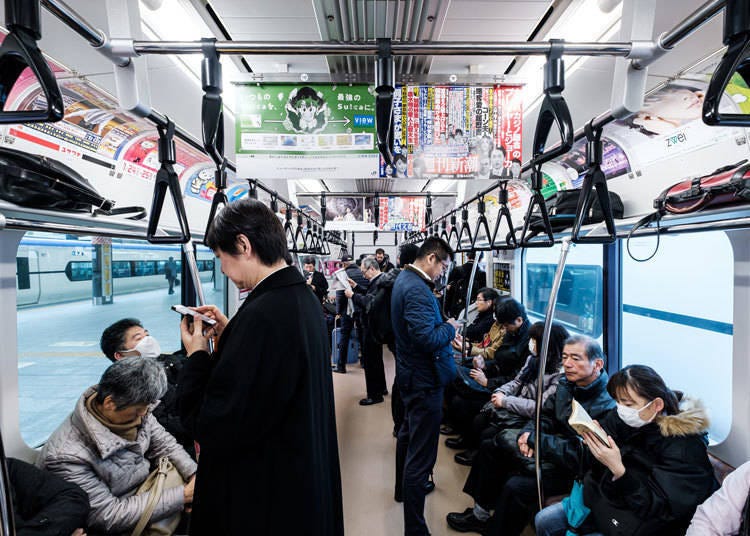
Wait... Am I Turning Japanese?! Habits Foreigners Pick Up After Moving to Japan
- Written by: Fujico
Many people from overseas live in Japan for work or study. In 2019, the number of international residents reached a record high of 2.73 million, and it's easy to notice more nationalities when you walk on the streets. We asked some of these residents about the moments when they felt, “Wow, I’m starting to act like a Japanese person!”
For this feature, we spoke with several students at the Akamonkai Japanese Language School, part of the Arai Gakuen educational group. They ranged from those who had been living in Japan for about six months to others who had been here for two years—five people in total shared their experiences.
I Used to Eat So Much of It… But Now I Can’t Handle Spicy Food!

The most common response was: “I can’t handle spicy food anymore.”
“In France, most dishes aren’t very spicy, but I used to enjoy it. In Japan, though, spicy food is even harder to find, and it’s not easy to get. I feel like I’m gradually losing the ability to eat it,” said a woman in her 20s from France.
“Same here. In Korea, spicy food is everywhere, and I could have it anytime. Even when I go to Korean restaurants in Japan, the dishes aren’t as spicy as back home. Occasionally, when I eat authentic Korean food, it feels spicier than I remember—I guess I’m becoming more like a Japanese person,” shared a woman in her 30s from Korea.
“Pakistan has so many spicy dishes! Since there are fewer places to eat Pakistani food in Japan, I feel like my taste buds have completely adapted to Japanese flavors,” said a teenage man from Pakistan.
Japanese cuisine often emphasizes subtle, layered flavors, such as those from dashi (broth). While restaurants serving international cuisines can be found throughout Japan, the flavors are often adjusted to suit local tastes or use ingredients available in Japan, so the taste can differ from the original. Spicy food, in particular, is less common than in many other countries. Some who could handle extremely spicy dishes back home found themselves unable to eat them in Japan—and that’s when they realized they were starting to adopt Japanese tastes.
Has Living in Japan Made Me More Organized? I Can’t Stop Tidying Up

A man from Vietnam shared that living in Japan has made him start noticing things he never paid attention to before.
“I think it was when I developed the habit of cleaning up neatly before leaving work. I started by copying what I saw Japanese people do, but gradually it became automatic. That’s when I thought, ‘Ah, I’m starting to act like a Japanese person,’” said the man in his 20s.
From a young age, Japanese people are often taught the importance of keeping things organized. Many employees naturally tidy their desks before leaving the office. In Vietnam, there isn’t as strong a culture of organization, but living in Japan seems to have made him more neat and tidy. He even said with a smile that he wants to keep this Japanese-style habit when he returns home.
'Excuse Me!’ or ‘Sorry!’—Apologizing Before Anything, Anytime

Some people noticed they were starting to act more Japanese when they picked up common phrases like apologizing immediately.
“Japanese people often say ‘sumimasen’ or ‘sorry’ right away, don’t they? At first, I wondered why they apologized so quickly, but I realized it’s just a habit. Lately, I’ve started saying ‘sorry’ right away too,” said a teenage man from Pakistan.
Apologizing immediately is something Japanese people often learn from a young age. Many international visitors see this habit as a sign of politeness. In some countries, however, apologizing too quickly can be seen as unnecessary, so opinions vary. Living in Japan, he said, he gradually started apologizing naturally without even realizing it.
“I’ve also come to understand that in Japan, apologizing right away is a way to keep interactions smooth and peaceful,” he added.
The young man from Pakistan realized that apologizing stems from a strong sense of consideration for others—a trait he noticed is particularly emphasized in Japan. Feeling more in tune with Japanese customs has helped him enjoy life in Japan even more.
Greetings Are Key! Saying ‘Good Morning’ and ‘Otsukaresama’ Comes Naturally

Just like saying “sorry” or “excuse me,” greetings are another characteristic habit of Japanese people.
“When I arrive at school or work, I say ‘good morning,’ and when I leave, I say ‘otsukaresama,’ which is a way of acknowledging someone’s hard work that day. Japanese people always make sure to say a word each time. Gradually, I started doing the same. I almost forget that I’m not Japanese anymore,” said a Vietnamese man in his 20s.
Greetings are very important in Japan. In Vietnam, they don’t have the same level of detailed greeting etiquette, but after coming to Japan, he naturally began greeting people properly at every opportunity. Whether at school or his part-time job, consistently saying hello and using phrases like otsukaresama helped him feel more integrated into Japanese life.
“I’ve also started bowing naturally, and that’s when I thought, ‘I’m becoming Japanese!’” he added.
Bowing is often done in place of a greeting. This young man began bowing when meeting teachers and other superiors, showing just how much he had adapted to Japanese customs.
‘Eh?’ and ‘Sō Desu Ka?’—I’ve Started Using Japanese Sayings Without Realizing It

Two French women noticed they had started using common Japanese filler phrases—words or sounds that connect sentences or show listening—and realized it made them feel more Japanese.
“I’ve recently started saying things like ‘Eh? Sō desu ka,’ stretching out the endings like Japanese people do,” said a teenage woman from France. (Sō desu ka literally means “Is that so?” and is often used as a polite acknowledgment in conversation, with the ending softly drawn out.)
“In French, our filler words—like ‘euh’ or ‘oh’—are said in a low voice and aren’t very cute. I’m happy that I’ve gotten used to speaking with cute Japanese-style fillers,” added a woman in her 20s.
Filler words are unique to each language and often reveal someone’s cultural or linguistic background. These two women were excited to find themselves naturally picking up Japanese-style fillers. Because Japanese has a soft, polite, and somewhat “cute” impression, they were drawn to speaking in a way that felt more like a native Japanese speaker.
'I Admire Japanese People! Habits I’d Like to Adopt'

Even though they haven’t fully adopted them yet, several people shared the Japanese habits they’d like to make part of their own lives.
“One thing I’d like to get used to is not talking or eating on the train. Since so many people are riding together in a closed space, it’s definitely better to keep quiet—and it’s nice that there aren’t any food smells either,” said a man in his 20s from Vietnam.
“For me, it’s how Japanese people use casual speech (tameguchi) even with older or younger coworkers at a part-time job. In Korea, age hierarchy is very strict, so it’s hard to become real friends with someone older. But in Japan, I feel people care more about workplace roles than age. At first it surprised me, but now I find it really comfortable,” said a woman in her 30s from Korea.
Japan’s train etiquette leaves a very positive impression on visitors, who are surprised at how quiet and orderly the ride can be. And while Japan still has its own hierarchies, some find it more relaxed than in their home countries—creating a friendlier, more approachable atmosphere.
Habits in Japan You Probably Don’t Want to Copy

Even though there are Japanese habits people want to pick up, there are also some they’d rather not adopt.
“I don’t like how people give vague answers. They just hint at things and expect you to say it for them. If you don’t tell me directly, I won’t understand,” said a man in his 20s from Vietnam.
“I also dislike vague answers. I play in a rock band, and once a Japanese person asked me to send them our music. I sent it, but they never replied. Any kind of answer would have been better than nothing,” said a woman in her 30s from Korea.
“Fake smiles are scary. You can’t tell what someone is really thinking,” said a teenage boy from Pakistan.
“For me, it’s when someone says, ‘Let’s meet next time!’ but then that ‘next time’ never happens. I believed it and invited them out many times, but they kept declining. I was honestly disappointed,” said a woman in her 20s from France.
Some readers might expect answers like disliking the sound of slurping noodles, but surprisingly, the most common response was frustration with vague communication and unclear attitudes. In a largely homogeneous society like Japan, people often understand each other without needing to say much—but for visitors, that can be confusing. As Japan becomes more globalized, perhaps being clearer in communication will help avoid misunderstandings.
Listening to these experiences also highlighted habits that many residents realized they, too, had picked up without noticing. It was a reminder of just how ingrained some “Japanese” quirks really are.
Born in Tokyo, she became a freelance writer in 2015. With experience studying and working in North America, she also offers English-Japanese translation and interpretation services. She has a deep love for Tokyo's Izu Islands and visits one of the islands at least once a month.
- Area
*Prices and options mentioned are subject to change.
*Unless stated otherwise, all prices include tax.
Popular Tours & Activitiess
-

Japan’s Shinkansen Is About to Change Travel in an Unexpected Way
by: Guest Contributor
-
Ad

(Opening in Jan 2026) 'THE SUMO LIVE RESTAURANT HIRAKUZA GINZA TOKYO!' 5 Exciting Ways to Experience the World of Sumo!
-

New in Ginza! Air BicCamera Ginza Opens with a Faster, More Convenient Shopping Experience
by: Guest Contributor
-

Strawberries, Style, and Tokyo’s Coolest Neighborhood: Winter Afternoon Tea in Kichijoji
by: Guest Contributor
-

This Winter, Godzilla Takes Over Haneda Airport
by: Guest Contributor
-

First Japan Cherry Blossom 2026 Forecast Announced! Here's When & Where to See Sakura in Japan
Inspiration for Accommodations
-

Enjoy Mt. Fuji from the Comfort of Your Room! Recommended Ryokan with Mt. Fuji View
-

Stay Near the Cherry Blossoms! Hotels for Cherry Blossom Viewing in Tokyo
-

Family-Friendly Hotels with Free Shuttle to Disneyland: Convenient Access for a Magical Stay
-

Top Ranked Hakone Hotels with Mt. Fuji View: Enjoy Stunning Scenery from Your Private Space
-

Convenient Tokyo Hotels with Airport Shuttle: Ideal for Families and Heavy Luggage
-

Stunning Tokyo Tower View Hotels: Enjoy Spectacular Scenery from Your Private Space
-

Convenient Asakusa Hotels with Kitchens: Ideal for Extended Family Visits
-

Experience Luxury: Hakone's 10 Best Five-Star Accommodations
-

Enjoy Mt. Fuji Autumn Leaves! Top Hotels Near the Popular Autumn Leaves Corridor
-

Experience Hakone Fall Foliage from Your Room with Stunning Views
-

Numazuko Kaisho in Ueno: Good Quality, All-You-Can-Eat Seafood for Just US$12!?
-

Exploring Tokyo Station: 11 Must-Visit Spots Around the Heart of Tokyo
-

Budget Dining: 11 Popular Spots for Japanese Food in Yokohama and Tokyo!
-

Essential Tokyo: The Complete Guide to Ikebukuro Station
-

Join in the fun at Enjoy Tokyo Festival: Beyond 2020 in Ikebukuro
-

Tokyo Food Craze: See Why Sushiro's Wild Sushi Dishes Have Foreign Visitors Talking!
- #best ramen tokyo
- #what to buy in ameyoko
- #what to bring to japan
- #new years in tokyo
- #best izakaya shinjuku
- #things to do tokyo
- #japanese nail trends
- #what to do in odaiba
- #onsen tattoo friendly tokyo
- #daiso
- #best sushi ginza
- #japanese convenience store snacks
- #best yakiniku shibuya
- #japanese fashion culture
- #best japanese soft drinks



















